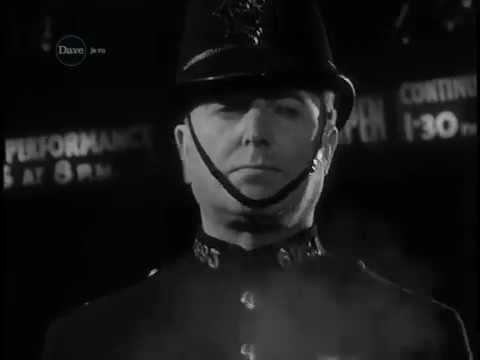Image: The 1950 film The Blue Lamp shot upcoming box-office attraction Dirk Bogarde to fame and notoriety at the same time. He plays an armed punk who robs a cinema. Discovered in flagrante delicto by an aged and experienced, but unarmed, beat policeman, played by Jack Warner, Bogarde seals his own fate by shooting the bobby dead. Warner would later reprise the role (despite being killed off before the film’s final credits) in the BBC TV series Dixon of Dock Green.
Mr Reznikov had his issues with winter jackets and food purchases; Mr Reznikov was by all accounts a fine servant of his people; Mr Reznikov has moved on to pastures new, diligently grazing on, before he was bullwhipped.
He’s written an opinion piece for The Guardian and you can read it here. Much of what he says makes good sense. If getting a western minister to recognise his failings were as easy as it seems to be in Kyiv, all would be much better, if not entirely well. So, how well in fact was this transition, stage-managed as it was with elegant timings all round? When peace finally comes, we surely can expect grandiose things of Ukraine. Bravo.
In his piece, however, he touches on a matter of some delicacy and, in that, I think he’s wrong:
“In 1938, striving to prevent what would become the second world war, an infamous agreement was signed in Munich ...”
The Munich Treaty was not, and is not, infamous. It was an honest endeavour to preserve the world as Neville Chamberlain knew it from becoming the world as he would soon come to know it. To dismiss his diplomatic efforts as folly and infamy is to equate his mission to Munich with the Japanese surprise attack on Pearl Harbor, and that is most unworthy.
Ukraine has proved its mettle on the battlefield and its ingenuity in coping and reinventing industry across its war-torn land, and for this I salute them. But Mr Reznikov has succumbed to the personal allure of corruption whilst in office, and his distaste for the peace efforts of 1938 might well be conditioned by his general aura of cynicism, which induced him to indulge in the practices that have seen his removal from office.
Neville Chamberlain, by contrast, ventured forth to Munich in a world less tainted by the blight of self-interest and armed with a faith that men of state could be trusted with the reins of power that had been placed into their hands. Never before had a foreign power challenged the authority of the British Empire and been the better off for it. Whatever the rights or wrongs of empire were, Chamberlain’s duty was to fire a shot across Hitler’s bows, and this he did, not through the offices of a plenipotentiary, but personally: the Prime Minister himself went to Germany, not some cabinet minister. If Hitler would not heed the shot, then Germany would be holed beneath the waterline. The holing was a tremendous feat, not achieved without alliance. But holed Germany was. However, any holing of a ship beneath its waterline must be preceded by a shot before its bows. Even cops fire a warning shot. They do, don’t they?
Chamberlain had no ostensible reason to doubt Adolf Hitler’s trustworthiness. Just as we today, to be sure, have no reason to doubt Mr Reznikov’s.
Image: left, Mr Oleksii Reznikov, Ukraine’s former Defence Minister, and, right, Mr Volodymyr Zelenskiy, the Ukrainian President.





